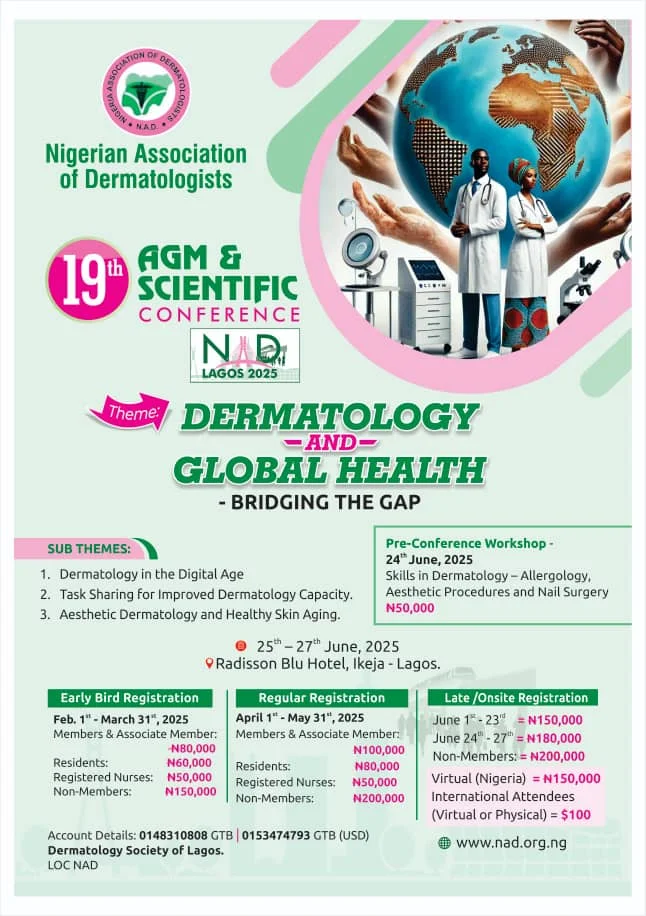A Consultant Dermatologist, Dr Lanre Falodun, has stated that vitiligo is a treatable skin condition, especially when diagnosed early, and is neither contagious nor caused by sin.
Falodun, who practices at the National Hospital, Abuja, said this during the 19th Annual General Meeting and Scientific Conference of the Nigerian Association of Dermatologists (NAD) in Lagos.
The three-day conference is themed, “Dermatology and Global Health, Bridging the Gap.”
The News Agency of Nigeria (NAN) reports that World Vitiligo Day is observed annually on June 25 to raise global awareness about the condition.
Falodun described vitiligo as an acquired, chronic autoimmune skin disorder marked by the appearance of depigmented patches on the skin.
He emphasised that the condition presented significant psychosocial challenges, particularly for individuals with darker skin tones.
He also expressed concern over persistent myths and misconceptions in society.
“There are myths that vitiligo occurs only in individuals born to mixed-race parents, that it is a disease of dark-skinned people, that it is contagious, or that it is linked to conditions such as cancer, leprosy, or albinism.
“We need to educate Nigerians that vitiligo is not contagious, not caused by sin, and treatable, especially if individuals present early to a dermatologist.”
Falodun noted that many people living with vitiligo face emotional and psychological stress due to the need to hide visible lesions, often leading to low self-esteem and sadness.
He identified stigma, high treatment costs, lack of clear treatment guidelines, and public misinformation as major obstacles to care.
He urged the public to stop stigmatising individuals with vitiligo and called on dermatologists to lead advocacy for more inclusive care for skin conditions.
“This is a wake-up call. We must ensure that every patient has access to high-quality care and support.
“All patients should be treated with dignity, and barriers to accessing healthcare must be removed,” he said.
Falodun also encouraged governments and healthcare professionals to take the lead in increasing public awareness, reducing treatment costs, improving access to medication, and addressing stigma associated with vitiligo.(NAN)





